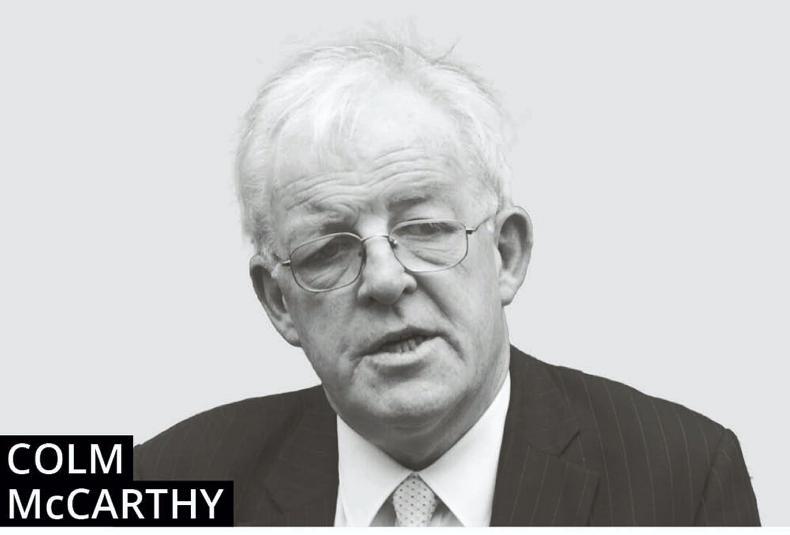In April 2016, the confident assessment of Michael Gove, one of the leaders of the pro-Brexit referendum campaign, was “the day after we vote to leave, we hold all the cards and we can choose the path we want”. There are no penalties for being so spectacularly wrong in modern British politics.
Three years later, Gove remains a member of the UK’s cabinet and one of the favourites to secure the leadership when May departs. She spent last Wednesday evening in Brussels begging the European Council for an extension.
Three years has not been time enough to lay down Gove’s royal flush. Some of the hubris which has infected British policy could have been excused as the European empires reached their zenith at the end of the 19th century – Cecil Rhodes was able, without too much exaggeration, to advise Earl Grey to “remember that you are an Englishman, and have consequently won first prize in the lottery of life”.
Rhodes certainly did – he had a whole African colony named after him: Grey had to settle for a brand of tea.
The greatest disservice done by Gove and the Brexiteers was the creation of the impression that the UK’s withdrawal after 45 years from the European Union would be straightforward
Numerous other European countries had empires and dangerous hubris to match through the first half of the last century but only Britain still seems to struggle with the psychological legacy.
The greatest disservice done by Gove and the Brexiteers was the creation of the impression that the UK’s withdrawal after 45 years from the European Union would be straightforward.
The UK is nowadays a medium-sized European country, heavily reliant on access to trade with its immediate neighbours.
The pretence that its economy could survive, detached from Europe, was abandoned as far back as the 1960s, when the first approaches were made to the emergent European Union.
Whether Brexit is the right course is a controversial and divisive issue, but it should never have been sold as anything other than an enormous economic and political challenge. Those political leaders who pretended otherwise are responsible for the humiliating crisis visited on Britain.
With another extension under Article 50 agreed, there are just three ultimate outcomes, with alternative routes to their emergence.
These are a withdrawal deal, a no-deal crash-out, or the cancellation of Brexit. Any deal will require acceptance of the withdrawal agreement already negotiated, according to the EU.
The long-term trading arrangements, foreshadowed currently in the non-binding political declaration, are up for grabs and the EU has signified its willingness to consider a permanent customs union, the preferred option of the Labour Party, with which the government’s discussions are continuing.
Customs union
If the eventual deal is a customs union, with no commitment to the single market, there will be frontier controls of some description between the EU-27 and the UK. These may be less obtrusive for north-south trade and travel if there are special arrangements regarding Northern Ireland, the UK’s only land border with the EU-27, but some level of intrusion on the current invisible border cannot be avoided.
East-west trade between the Republic and Britain will not be covered by any special Northern Ireland deal and it matters far more in economic terms.
There has been inexplicable confusion in the UK political debate about the customs union.
Only members of the EU can be members of “the” customs union, although non-members can conclude “a” customs union with the EU which mirror its principal provisions.
Turkey has such an arrangement, agreed when that country was expected to join the EU, but there are substantial controls at Turkey’s frontiers with Bulgaria and Greece.
Turkey is not in the single market, the EU’s regulatory union, which is what ensures common product standards and hence frictionless trade.
The Labour Party favours only a permanent customs union, apparently in the belief that this alone will ensure frictionless trade
Prior to the mid-1990s, when the single market reforms came fully into effect, there were frontier controls inside the EU.
They will return unless the UK agrees to a single-market deal as well as a customs deal and there is little sign of any such development.
The Labour Party favours only a permanent customs union, apparently in the belief that this alone will ensure frictionless trade.
It will not, nor can it without additional provisions, avoid a hard border in Ireland (and everywhere else).
The availability of a long extension affords the possibility of a second referendum and the ultimate abandonment of the Brexit project, should a straight remain option be offered and preferred by voters. This is the best possible outcome for Ireland.
Irish citizens in the UK got to vote in the 2016 referendum but UK ministers have recently queried whether this should continue.
There is a proposal to hold a May referendum here extending voting privileges in presidential elections to UK residents in the Republic – they can only vote in Dáil, local and European elections at present. Why not pre-emptively offer them referendum votes as well?
Read more
24-hour notice required to import UK livestock products in hard Brexit
Hogan lines up farm support against 'the madness of Brexit'
In April 2016, the confident assessment of Michael Gove, one of the leaders of the pro-Brexit referendum campaign, was “the day after we vote to leave, we hold all the cards and we can choose the path we want”. There are no penalties for being so spectacularly wrong in modern British politics.
Three years later, Gove remains a member of the UK’s cabinet and one of the favourites to secure the leadership when May departs. She spent last Wednesday evening in Brussels begging the European Council for an extension.
Three years has not been time enough to lay down Gove’s royal flush. Some of the hubris which has infected British policy could have been excused as the European empires reached their zenith at the end of the 19th century – Cecil Rhodes was able, without too much exaggeration, to advise Earl Grey to “remember that you are an Englishman, and have consequently won first prize in the lottery of life”.
Rhodes certainly did – he had a whole African colony named after him: Grey had to settle for a brand of tea.
The greatest disservice done by Gove and the Brexiteers was the creation of the impression that the UK’s withdrawal after 45 years from the European Union would be straightforward
Numerous other European countries had empires and dangerous hubris to match through the first half of the last century but only Britain still seems to struggle with the psychological legacy.
The greatest disservice done by Gove and the Brexiteers was the creation of the impression that the UK’s withdrawal after 45 years from the European Union would be straightforward.
The UK is nowadays a medium-sized European country, heavily reliant on access to trade with its immediate neighbours.
The pretence that its economy could survive, detached from Europe, was abandoned as far back as the 1960s, when the first approaches were made to the emergent European Union.
Whether Brexit is the right course is a controversial and divisive issue, but it should never have been sold as anything other than an enormous economic and political challenge. Those political leaders who pretended otherwise are responsible for the humiliating crisis visited on Britain.
With another extension under Article 50 agreed, there are just three ultimate outcomes, with alternative routes to their emergence.
These are a withdrawal deal, a no-deal crash-out, or the cancellation of Brexit. Any deal will require acceptance of the withdrawal agreement already negotiated, according to the EU.
The long-term trading arrangements, foreshadowed currently in the non-binding political declaration, are up for grabs and the EU has signified its willingness to consider a permanent customs union, the preferred option of the Labour Party, with which the government’s discussions are continuing.
Customs union
If the eventual deal is a customs union, with no commitment to the single market, there will be frontier controls of some description between the EU-27 and the UK. These may be less obtrusive for north-south trade and travel if there are special arrangements regarding Northern Ireland, the UK’s only land border with the EU-27, but some level of intrusion on the current invisible border cannot be avoided.
East-west trade between the Republic and Britain will not be covered by any special Northern Ireland deal and it matters far more in economic terms.
There has been inexplicable confusion in the UK political debate about the customs union.
Only members of the EU can be members of “the” customs union, although non-members can conclude “a” customs union with the EU which mirror its principal provisions.
Turkey has such an arrangement, agreed when that country was expected to join the EU, but there are substantial controls at Turkey’s frontiers with Bulgaria and Greece.
Turkey is not in the single market, the EU’s regulatory union, which is what ensures common product standards and hence frictionless trade.
The Labour Party favours only a permanent customs union, apparently in the belief that this alone will ensure frictionless trade
Prior to the mid-1990s, when the single market reforms came fully into effect, there were frontier controls inside the EU.
They will return unless the UK agrees to a single-market deal as well as a customs deal and there is little sign of any such development.
The Labour Party favours only a permanent customs union, apparently in the belief that this alone will ensure frictionless trade.
It will not, nor can it without additional provisions, avoid a hard border in Ireland (and everywhere else).
The availability of a long extension affords the possibility of a second referendum and the ultimate abandonment of the Brexit project, should a straight remain option be offered and preferred by voters. This is the best possible outcome for Ireland.
Irish citizens in the UK got to vote in the 2016 referendum but UK ministers have recently queried whether this should continue.
There is a proposal to hold a May referendum here extending voting privileges in presidential elections to UK residents in the Republic – they can only vote in Dáil, local and European elections at present. Why not pre-emptively offer them referendum votes as well?
Read more
24-hour notice required to import UK livestock products in hard Brexit
Hogan lines up farm support against 'the madness of Brexit'









SHARING OPTIONS